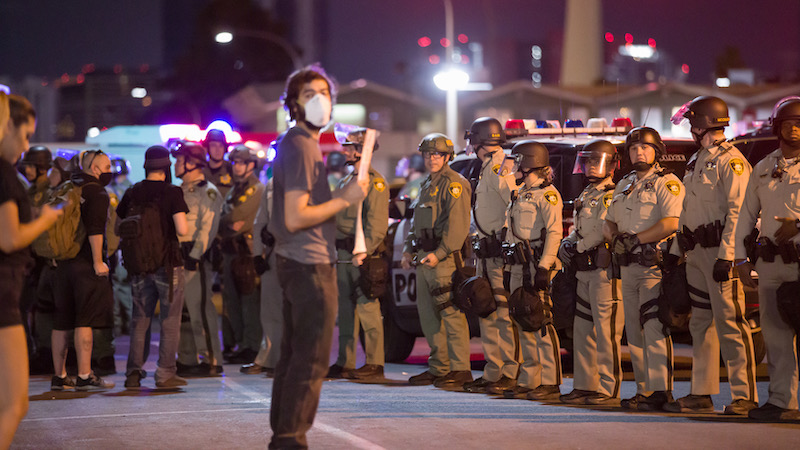Below are our most popular posts of 2013. Thank you for contributing to the discussion at Values & Capitalism this past year. Happy New Year!
10. Book Review: “Conscious Capitalism” by Whole Foods Founder John Mackey by Wesley Gant
The new book from John Mackey, co-founder of Whole Foods Market, is an inspiring defense of free enterprise. Scratch that. It is an exceptional guide to best practices in organizational leadership. No, scratch that as well. To be sure, it is all of this, but much more: “Conscious Capitalism: Liberating the Heroic Spirit of Business” is a treatise for a cultural revolution.
9. P.J. O’Rourke on the “Good Socialism” of Sweden by Joseph Sunde
In the past, I’ve labeled such misaligned dreamlands as “robot utopias”—environments that, despite being imagined as comfy and cozy and efficient and equitable, are not particularly suited to human needs or divine dreams. As O’Rourke’s travels confirm, the deeper implications are well worth considering, from the spirit (or lifelessness) of our graffiti to the power (or pettiness) of St. George’s lance.
8. Minimum Wage: Good Intentions, Bad Policy by Nicholas Freiling
Despite the good intentions of its modern-day propagators, minimum wage is a questionable policy that should raise eyebrows for anyone concerned with the plight of the poor. At the very least, think twice before supporting a minimum wage hike. History suggests it might not have Mr. Obama’s intended effect.
7. Dignity, Equality and Atticus Finch by Wesley Gant
A proper respect for human dignity should recognize and encourage personal industry and responsibility—for it is this freedom that enables people to flourish and realize their human potential. But socialistic policies do just the reverse. By attempting to level out society they disconnect work from reward, segregate people into groups of this or that characteristic (privileged or not), turn them against one another, and make people into victims of a system, rather than capable and valuable citizens.
6. Saving Scrooge: The Real Meaning of “A Christmas Carol” by Wesley Gant
The story compels us to consider how we treat the poor. We are encouraged to embrace a selfless spirit of giving on Christmas and year round. But it should also make us consider the truly important things in life, and how easily they are tossed aside as we seek our own goals. It should remind us that material gain, for all of its very real benefits, does not compare to the richness and happiness found in sharing our hopes, fears and good humor with those around us. It should teach us that our pursuit of prosperity exists for greater ends, and is not an end in itself.
5. America’s Middle Class: Why Average is Over by David Wilezol
If the economic consequences of family breakdown are evident to an economist who is not particularly devoted to a refined study of these issues, then it should send a signal to the rest of us just how important strong family formation and solidification is to cultivating those workplace attributes that will prove indispensable in the future.
4. The Men Who Built America: John D. Rockefeller’s Faith by T. Kurt Jaros
Rockefeller serves as a great example of what it means to be a good steward of what God has given us. He also is a reminder to abide by those seemingly counterintuitive instructions to rest on the Sabbath and to give so that we might have more.
3. Five Books You Will Love if You Liked “Ender’s Game” by Jacqueline Isaacs
While the setting seems similar, I felt “The Hunger Games” trilogy missed many opportunities to have the kind of meaningful message “Ender’s Game” delivers. Card masterfully describes a dystopian world in his 1985 novel. And for those of you disappointed in how “The Hunger Games” trilogy ended, Card’s shocking ending to “Ender’s Game” will surely make you believe in the power of stories again. Here are five similar novels which I highly recommend.
2. Is a College Degree Necessary for a Good Job? Not Always. by David Wilezol
For several generations, too many Americans bought into the idea that everyone should get a bachelor’s degree. Times have changed. What matters now, more than ever, is having the skills to do the job, not a piece of paper. A bachelor’s degree can still be a good investment, but it is possible to succeed in America without a four-year degree.
1. Q&A With Joel Salatin: A Tree-Hugging, Christian, Libertarian Farmer (Part Two) by Elise Amyx
To say that the government is the only or even the best remediation of “something that ought to be done” is both myopic and disempowering to the collective strength of individuals who share a vision. I’m often asked what I would do if I were named Secretary of Agriculture. My answer: “I’d shut the agency down tomorrow.”



